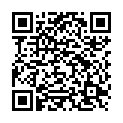|
|
|
| Module code: MAMS-310 |
|
|
- |
|
22 |
| Semester: 3 |
| Mandatory course: yes |
Language of instruction:
German |
Assessment:
Master´s thesis (can be repeated semesterly)
[updated 20.11.2019]
|
MAMS-310 (T420-0022) Marketing Science, Master, ASPO 01.04.2016
, semester 3, mandatory course
MAMSc-310 (T420-0349) Marketing Science, Master, SO 01.04.2025
, semester 3, mandatory course
|
|
The total student study time for this course is 660 hours.
|
Recommended prerequisites (modules):
None.
|
Recommended as prerequisite for:
|
Module coordinator:
Prof. Dr. Tatjana König |
Lecturer:
Dozierende des Studiengangs
[updated 25.01.2016]
|
Learning outcomes:
After successfully completing this module, students will:
- be able to apply the knowledge and skills acquired during the first two semesters, in particular in the field of marketing analysis and empiricism, to a question/task with practical and/or research relevance in a scientific paper within a specified period of time.
-
In doing so, they will be able to work on the problem in an abstract/generalizable form using the theoretical knowledge gained during their studies,
-
as well as common marketing methods and, in particular, multivariate procedures.
- Students will be able to scientifically evaluate and reflect on well-known contributions on their topic,
- and develop working hypotheses and approaches to solutions from them.
- They will be able to develop a suitable empirical design for testing the hypotheses they make,
- and, if possible, carry out an empirical survey.
- Students will thus, be able to apply the theoretical, methodological and argumentative competence acquired during their studies,
- and present their results precisely, concisely and in compliance with scientific standards
- and thus, expand the current state of research.
[updated 20.11.2019]
|
Module content:
The Master´s thesis must refer to relevant, subject-related questions that will be coordinated between the student and his/her supervisor. Thematically, it can refer to a practical problem (in cooperation with a company or public authority) or a theoretical problem (e.g. in cooperation with a research institution). If possible, a separate empirical study should be carried out. It is also possible to use company/project or research data if students have access to the data. Students have 20 weeks to write their thesis.
[updated 20.11.2019]
|
Teaching methods/Media:
Written thesis
[updated 20.11.2019]
|
Recommended or required reading:
Depends on the respective topic
[updated 20.11.2019]
|


